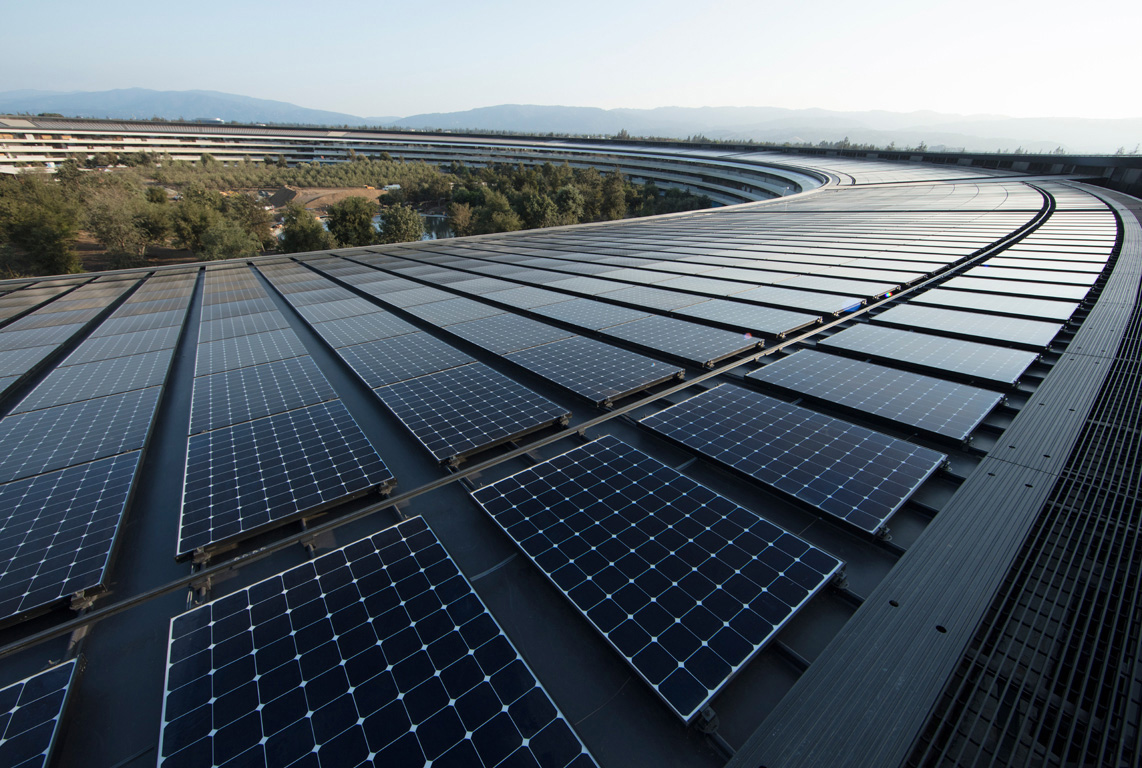Will rising energy costs force iCloud prices to increase?

Apple also makes huge investments in solar power
Increasing energy costs and rising interest rates may drive the cost of cloud services up over the coming year, but will Apple’s iCloud resist the trend?
What is happening in Europe
War in Ukraine continues to create vast problems in European energy supply. The cost of energy is rising incredibly fast, consumers and businesses are buckling under the pressure and most of us face an incredibly tough and challenging winter.
Europe isn’t alone in this. Energy costs are climbing everywhere even while use of cloud-based services continues to increase.
Cloud services don’t exist in some vaporous alternative universe. They sit on hardware – servers – situated in server farms – and every bit of data is a little slice of energy used even when stored, because data dies when the electricity switches off. Every Siri question and every CMS interaction is a little more power draw.
The pain of increased energy costs won’t be felt equally. Enterprises with their own internal data centers will really feel the pain, those who use third party cloud services will inevitably experience increasing prices. Concerns around data sovereignty and individual data privacy will limit the ability firms have to simply begin using data centers in locations with cheaper energy costs.
Apple may be able to resist this trend slightly.
Why?
Because it has claimed 100% of the energy used across its business comes from renewable sources, and because it has invested in solar and wind power to help drive its work. Apple is investing directly in renewable projects around the world, including nearly 500 megawatts of solar and other renewable projects in China and Japan to cover a portion of upstream emissions. Its suppliers have doubled use of clean power, it announced this year.
In recent years the company has quietly installed energy sources near iCloud data centers, and while not every iota of energy comes from those sources, it should help.
But that doesn’t mean iCloud prices won’t increase, as the internet is a series of interconnected nodes, which means Apple’s iCloud supply chain partners of various kinds may well feel the hit of increasing energy costs. And they will pass those costs on to Apple, who will pass them on to us.

We need more like these
Transition or trial
Things will improve as new energy sources are put in place. Sophia Jones, an investment analyst, told Information Week, “It’s likely going to be a long winter, but assuming the energy issues are resolved by mid-spring 2023, it shouldn’t be massively disruptive to the overall IT sector.”
Perhaps so, but the other flip of the coin is the growing cost of deployment. Use of cloud services is growing fast – up 30% per quarter. The biggest seven cloud providers have spent an estimated $140 billion this year, said Canalys. They are buying buildings, networking gear and other equipment and the cost of these things is also increasing. That was fine in the context of low cost borrowing, but as that cost increases cloud service providers will feel the pain.
The result? Speaking at an event in Barcelona, Steve Brazier, CEO at Canalys, said: “We expect public cloud prices in Europe to increase at least 30 percent in 2023, causing an almighty shock to many of their customers who are also trying to get their costs down and leading to a lot of tension and a lot of aggravation between you and them and providers.”

Is Apple One enough to shore up the services income?
The big data lock down
The big problem within this, particularly given Apple’s cloud-based services, is the extent to which the company will be forced to pass energy price increases onto customers. We know it has already raised App Store prices in Europe. The other challenge, of course, will be what Apple can do to prevent its customers suddenly feeling like they are being shaken down, given the sheer quantity of important data they likely already have stored in the iCloud.
Please follow me on Twitter, or join me in the AppleHolic’s bar & grill and Apple Discussions groups on MeWe.



